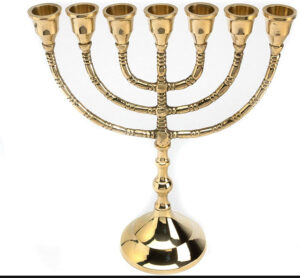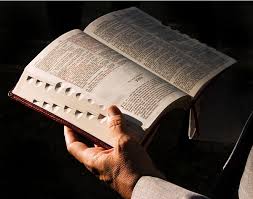 ‘After These Things’ Chapter 5.2 – After the Rapture, the Jewish Remnant – Particularly from Isaiah
‘After These Things’ Chapter 5.2 – After the Rapture, the Jewish Remnant – Particularly from Isaiah
From our book ‘After These Things – Summaries of John Nelson Darby’s Papers on Prophecy – and more…’ Compiled by Daniel Roberts. For more about this book click on the picture or CLICK HERE
A summary of a part of a paper by J.N. Darby entitled: The Rapture of the Saints and the Character of the Jewish Remnant: Published in Darby’s Collected Writings – Volume 11 (Prophetic 4) Pages 118-134.

Isaiah gives us we the Jewish remnant in the latter day. Christ’s personal service on the earth when He first came bore on and spoke of remnant. The blessing is earthly, Jewish, and millennial. Christ, the great Prophet on the earth, to whom Israel was to hearken, the minister of the circumcision, was rejected. The Gentiles are introduced to prove God’s patience with Israel.
God will not destroy all Israel: those who forsake Him and are judged. Those who hated God’s servants, who trembled at Jehovah’s word, are cast them out.
Meanwhile His servants sing for joy of heart. They are righteous, so when Christ appears, He gives them the earthly blessing, they inherit the mountains, enjoying peace like a river (Isa 66:12).
The prophecy does not relate to the church.
5.2 After the Rapture, the Jewish Remnant – Particularly from Isaiah
Scriptural Support for the Remnant
Do not confuse the Remnant and the Church
The Remnant has in Christ an exclusively Jewish National Hope.
 Isaiah gives us the Jewish Remnant in the latter-day. In Isaiah, as mostly in the gospels, the blessing is earthly, Jewish, and millennial. Christ, the great Prophet on the earth, to whom Israel was to listen, the Minister of the circumcision, was rejected by Israel. ‘He came unto his own, and his own received him not’ (John 1:11). The Gentiles are introduced to prove God’s patience with Israel.
Isaiah gives us the Jewish Remnant in the latter-day. In Isaiah, as mostly in the gospels, the blessing is earthly, Jewish, and millennial. Christ, the great Prophet on the earth, to whom Israel was to listen, the Minister of the circumcision, was rejected by Israel. ‘He came unto his own, and his own received him not’ (John 1:11). The Gentiles are introduced to prove God’s patience with Israel.
God will not destroy all Israel: those who forsake Him are judged. Those who hated God’s servants, who trembled at Jehovah’s word, are cast out. On the other hand, His righteous servants sing for joy of heart when Christ appears. He gives them the earthly blessing: they inherit the mountains, enjoying peace like a river (See Isaiah 66:12).
Numerous Old Testament scriptures refer prophetically to the Jewish Remnant. The Spirit of Christ enters into their thoughts, feelings, hopes and even fears. Prophetic scripture places this Remnant in time between the Rapture of the Church and before the Lord’s Appearing. Those of the Remnant will be waiting for that Appearing.
The Remnant is totally distinct from the Church. Prophecy does not relate to the Church. The Church has a unique character and relationship with Christ. It was formed into one body by the descent of the Holy Spirit from heaven.
Christ will have Raptured His church when the Spirit of God works sovereignly in righteous, godly Jews. These will recognise their Messiah, rest on His sacrifice for their salvation, and testify to the glory of Christ amid terrible persecution. But they will have a totally different relationship to Him compared with that of the Church.
Unfortunately, many Christians deny the existence of the Jewish Remnant. This is a serious error because it connects the Spirit of Christ and the piety flowing from it with the ungodly and unconverted proud, self-righteousness Jews. Those who deny the secret Rapture of the saints are doing just that.
Scriptural Support for the Remnant
Here are four points on which Scripture is clear:
- The true Church of God is being formed at the present time.
- The Church will be Raptured at the end of this time.
- There will be a distinct suffering Jewish remnant after this.
- Then Christ will appear, and the Millennium will commence.
The Jewish Remnant will come to light after the Rapture. Though faithful, it will have neither the church’s heavenly blessings nor the church’s hope. Here are some scriptures which support the truth as to the Remnant.
Firstly, as to the Jews:
‘And it shall come to pass, that in all the land, saith the Lord, two parts therein shall be cut off and die; but the third shall be left therein. And I will bring the third part through the fire, and will refine them as silver is refined, and will try them as gold is tried: they shall call on my name, and I will hear them: I will say, It is my people: and they shall say, The Lord is my God’ (Zechariah 13:8-9).
Then as regards the ten tribes of Israel:
‘And I will bring you into the wilderness of the people, and there will I plead with you face to face… I will accept you with your sweet savour, when I bring you out from the people, and gather you out of the countries wherein ye have been scattered; and I will be sanctified in you before the heathen. And ye shall know that I am the LORD, when I shall bring you into the land of Israel, into the country for the which I lifted up mine hand to give it to your fathers’ (Ezekiel 20:35,41-42).
Then united:
‘Behold, I will take the stick of Joseph, which is in the hand of Ephraim, and the tribes of Israel his fellows, and will put them with him, even with the stick of Judah, and make them one stick, and they shall be one in mine hand’ (Ezekiel 37:19).
The Remnant:
‘And it shall come to pass in that day, that the remnant of Israel, … shall return, even the remnant of Jacob, unto the mighty God’ (Isaiah 10:20-21).
Their gatherings:
‘Then they that feared the Lord spake often one to another: and the Lord hearkened, and heard it, and a book of remembrance was written before him for them that feared the Lord and that thought upon his name. And they shall be mine, saith the Lord of hosts, in that day when I make up my jewels[1]; and I will spare them, as a man spareth his own son that serveth him’ (Malachi 3:16-17).
The last word in the Old Testament:
Remember ye the law of Moses my servant, which I commanded unto him in Horeb for all Israel, with the statutes and judgments. Behold, I will send you Elijah the prophet before the coming of the great and dreadful day of the Lord: and he shall turn the heart of the fathers to the children, and the heart of the children to their fathers, lest I come and smite the earth [land] with a curse.’ (Malachi 4:4-6).
Do not confuse the Remnant and the Church
Christians love quoting ‘They that feared the Lord spake often one to another’ (see above); – especially if they participate in assembly Bible readings or house meetings. As we have seen elsewhere, these scriptures do not relate to Christianity: they refer to the Jewish Remnant with earthly blessings. Satan’s work is to deny a distinct Jewish Remnant, having Jewish faith, Jewish hopes, and resting on Jewish promises. It reduces the church to the level of these; and denies and loses the value and power of our spiritual blessings in heavenly places in Christ, and the union of Christ’s body with Him. Those Christians who hold this have been deceived by the enemy, though they may be unaware of it.
Many Old Testament scriptures show us how the Lord honoured, glorified and blessed the Jewish Remnant. They had been waiting on Him under challenging conditions. Some scriptures speak of the intervention of God to deliver or gather Israel; other passages refer explicitly to the despised remnant and its state before God intervened in power. This truth rests not just on a few casual texts, but on the consistent teaching throughout Scripture.
The chronology is important. The Spirit-led prophets referred to ‘the day,’ or ‘that day,’ with without any supposed interruption or interval (i.e. of the church period). The godly people looked forward to Christ, the great Prophet of Israel. The prophetic witness continued with the Lord’s words to a waiting remnant during His lifetime here. He warned His disciples as to the pending destruction of Jerusalem (AD 70), and the ensuing judgment of the nation. This judgment broke all connection of God’s testimony with the Jewish nation and left the exclusively heavenly Church (majority Gentile) the only acknowledged witness on earth until the Rapture.
The scriptures in Malachi 3 and 4 (see Chapter 5.1 above) can be applied to Christ’s first coming, preceded by John the Baptist (spoken of as Elijah). However, this passage has a Jewish character, and its proper application refers to the days following the Rapture. The godly Jewish Remnant, who feared Jehovah’s name, is contrasted with the wicked majority. Like the godly in Israel in the prophet’s time[2], they will speak often one to another. They triumph over their wicked oppressors, and God will spare them in that day.
The Remnant in Isaiah
Although we know that the Old Testament scriptures relate directly to Israel and God’s government of the world, they may be applied to the Church, and to God’s sovereign grace. This grace must be in Christ, for He is the centre of all God’s ways.
In the gospels, we see Christ’s relationship with Israel. We have God’s dealings in grace, but the refusal of God’s grace exposed the state of the nation. As a result, God separates the Remnant and judges the nation. After sending the prophets to seek fruit, the Lord of the vineyard said, ‘I have yet one Son: it may be they will reverence my Son when they see Him. But when the husbandmen saw him, …they cast him out of the vineyard, and killed him. What therefore shall the lord of the vineyard do unto them? He shall come and destroy these husbandmen, and shall give the vineyard to others.’ (Luke 20:13-16). We often apply the ‘others’ to the disciples and the Church, but strictly speaking, ‘others’ relate to the future Remnant.
Let us examine the testimony of Isaiah as to the remnant. The Spirit of Christ speaking through the prophet, says as to the state of Judah: ‘Why should ye be stricken any more? Except the Lord of hosts had left unto us a very small remnant, we should have been as Sodom, and made like unto Gomorra.’ (Isaiah 1:5, 9). According to the prophet, the nation must be restored and purified by judgment (see chapter 1:27). There will be just a remnant left -10% -‘yet in it shall be a tenth, and it shall return, and shall be eaten’
(chapter 6:13), full of glory and holiness and protected by Christ (see chapter 4:2-6), with Jerusalem on earth as its centre.
In Isaiah 7 and 8, we see Assyria overrunning Judah, (that happened in Isaiah’s time): there would be a confederacy of nations against it. Israel’s local enemies (Moab etc) will be set aside, but they are not to lean on human sources of strength. Israel will be encouraged not to be afraid of the Assyrian, for His indignation (anger) would soon cease, and the enemy will be destroyed. God gave a sign: ‘Behold, a virgin shall conceive, and bear a son, and shall call his name Immanuel’ (Isaiah 7:14), the Lord of hosts in the sanctuary, separating the Remnant. He is a stone of stumbling to the nation.
The Church Period is passed over.
Nothing need be said. The Church and the whole church period do not come into prophecy.
The Remnant has in Christ an exclusively Jewish National Hope.
The prophecy that follows from Isaiah 9 onwards takes up the general history of Israel in the prophet’s time, its chastisements and hardness of heart. This has its parallel with the Remnant. Israel will suffer under the Antichrist. But the people are to be kept at peace. ‘Thou wilt keep him in perfect peace, whose mind is stayed on thee: because he trusteth in thee’ (ch. 26:3) and, ‘Come, my people, enter thou into thy chambers, and shut thy doors about thee: hide thyself as it were for a little moment, until the indignation be overpast’. (ch. 26:20)
‘They say, ‘Lo! this is our God, we have waited for him, and he will save us: this is the Lord; we have waited for him; we will be glad and rejoice in his salvation‘ (ch 25:9) Things will be turned: ‘In that day shall the LORD of hosts be for a crown of glory, and for a diadem of beauty, unto the residue of his people’ (Isaiah 28:5). God will weigh the path of the just (see ch. 26:7). These chapters show the character and glory of the remnant before judgment is executed on the nation.
In Chapter 33, we have the last day of trouble for the righteous remnant in Zion. Its security is announced on the ground of their righteous walk. ‘Strengthen ye the weak hands and confirm the feeble knees. Say to them that are of a fearful heart, Be strong, fear not: behold, your God will come with vengeance, even God with a recompense; he will come and save you’ (Ch. 35:3-4). The feeble remnant is encouraged while waiting for the Lord. When He comes with vengeance, the ransomed of the Lord will come to Zion with song. This is a Jewish deliverance.
The latter part of Isaiah has a different character: God reasons with His people. In ch. 40-48 we have the general restoration of the nation and the futility of the Babylonish idols. Cyrus is introduced by name, and Christ takes the place of Israel as a servant; He is the true vine.
In chapter 49, we have the Remnant, the preserved of Israel (see v.6), ‘they fear the Lord, and listen to the voice of his servant’. In general, though, God had laboured in vain for Israel. In chapter 51:1, they know and follow after righteousness, and have the law in their heart. At first, the comfort of Zion has not yet come, nor has His arm put on strength. But later the redeemed of the Lord return to Zion. The whole chapter follows the appeals of Jehovah to the righteous Remnant and their deliverance by Him.
Afterwards, in chapter 52, the exalted Servant is introduced, and the Lord bares His arm in the eyes of all the nations. All the ends of the earth see the salvation of the God of Israel. The remnant recognises that the despised and rejected Christ had been bruised for their iniquities (see chapter 53). Then comes the full blessedness of Jerusalem: her Maker is her husband (chapter 54:5). In chapter 57, some of the righteous perish like the Righteous One, but the wicked never have peace. In chapter 58 we see the spirit in which the godly Jew should walk; being part of the suffering remnant, in the midst of an ungodly nation. Jehovah comes in in with righteousness in chapter 60. Chapter 61 is remarkable in that the Lord quotes from this scripture in Luke 4, applying it to Himself, but stops before the part which speaks of the day of vengeance. Yet in the future time, the day of vengeance comes ‘to comfort them that mourn in Zion, to give unto them beauty for ashes, the oil of joy for mourning, the garment of praise for the spirit of heaviness; that they might be called trees of righteousness, the planting of the LORD, that he might be glorified’ (ch 61:3).
Through these prophecies, we understand the doctrine of an earthly Jewish remnant. The Remnant is owned by Jehovah, piously and confidently waiting for Him to deliver them. This is not a matter of speculation, nor of the interpretation of some obscure text, but the clear, consistent testimony of the Spirit of God.
[1] There is no reference to ‘jewels’ in the original. Darby translated this (Malachi 3:17) as ‘they shall be unto me a peculiar treasure, saith Jehovah of hosts, in the day that I prepare’. Reliable modern translations are similar: e.g. ‘They shall be mine, says the LORD of hosts, in the day when I make up my treasured possession’ (ESV).
[2] Continuing to the Lord’s time in Mary, Elizabeth, Anna and Simeon.


